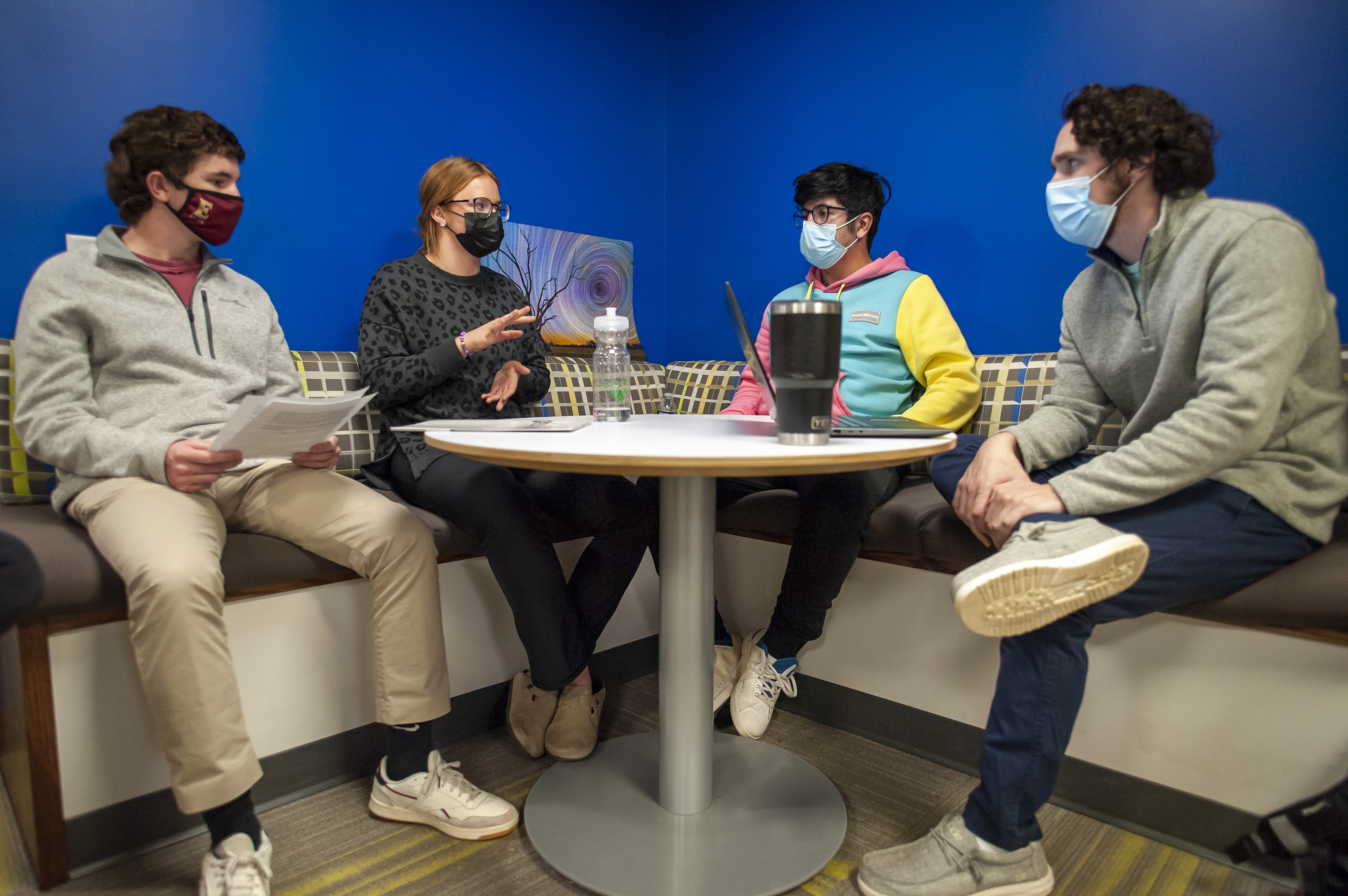Elon's Living Learning Communities have served as a great outlet for students and staff to build meaningful relationships.
Students arriving for their first year of college are confronted with more than just challenging coursework and rigorous exams. Along with the everyday stressors of being a college student, there’s the challenge of settling into a new environment with seas of unfamiliar faces. And studies have shown that the more comfortable students feel in that environment, the more successful they are in the classroom.
A student’s comfortability directly correlates to their success in the classroom. Coming to a new environment with unfamiliar faces paired with the everyday stressors of being a college student can be too much for a student to deal with.
That’s where Elon University’s Residential Learning Communities come in. These immersive residential, social and intellectual experiences are designed to help ease the transition into college life and operate as a student’s home away from home.
“It’s about bonding and forming community and a sense of belonging,” said Shannon Lundeen, director of Academic-Residential Partnerships.

“Residential Learning Community” is used as an umbrella term to describe the number of different communities and undergraduate education experiences that are organized to enhance students’ learning through subsets of the community, Lundeen said. Those subsets are living-learning communities (LLCs) and student-directed learning communities (SDLCs), which are led by student coordinators.
Some LLCs at Elon are purely social while others are more co-curricular in their objectives, such as the STEM LLC which is housed in Colonnades E, the same building that The Maker Hub is in.
Max Casey ’24, a sports management major and member of the Sports Management and Media LLC, said that he discovered Elon’s residential learning program when researching what the university had to offer. He thought it would be a purposeful way to meet people with similar interests.
“It’s a lot more interesting than a random hallway because everybody wants to be there,” Casey said. “Having these experiences helped me meet a lot of the friends I have on campus, and I think it wouldn’t have happened the same way as if I had a random housing assignment.”
The students involved in all LLCs, not just the STEM LLC, are exposed to a variety of creative, innovative, academic and community-focused activities. However, like every other facet of life, the LLCs on Elon’s campus have had to adjust how they operated due to the COVID-19 pandemic.
Aliana Harrison, associate director of Residence Life for Residential Education and Community Development, said the LLCs adjusted admirably during the pandemic, providing virtual opportunities to engage and connect with students.
“What we heard from students was it was a time to just talk about how they were doing,” Harrison said. “Many of the student Residential Advisors weren’t checking in with the students, so the LLC one-on-ones or game nights which had to be done virtually became that much more important.”
Lundeen is one of 11 members of The National Learning Community, which is a cohort of learning community practitioners and researchers focused on engaging in ongoing dialogue to explore the current state, and more importantly, the future of learning communities. Because of the public health and financial strains created by the pandemic, many higher education institutions may feel the need to lessen or remove high-impact practices, such as learning communities. But the National Learning Community argues they are “uniquely positioned” to succeed.
Outside the classroom is a world stricken with innumerable problems which require nuanced input from many people of various backgrounds. LLCs provide a “coherent and interdisciplinary” space for confronting those problems.
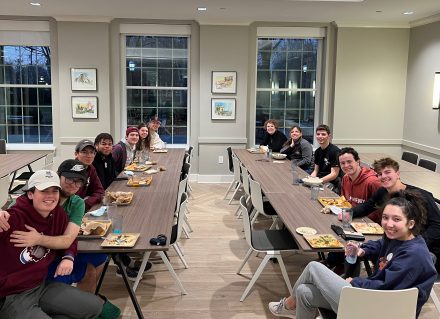
During times when support is needed more than ever, learning communities act as an underpinning for both students and faculty. College can be overwhelming with grades, finances and social dilemmas. With the added seclusion from their support bases, the college experience could become unbearable — the complete antithesis of what this time in a student’s life should be.
“They still can feel a little bit lost if they haven’t quite found their groove or found their people,” Lundeen said. “LLCs are a way to help those students find community and find people who are interested in similar things right away.”
Harrison added, “The LLCs pull away some of the anxiety of college. Students know that they’re going to live with 25 to 36 people who have one thing in common and that one thing is their LLC topic.”
From the educator-advisor point of view, it is also paramount to continue to facilitate learning and student engagement opportunities during the pandemic, said Bob Frigo, advisor to the Paideia: Politics and Active Citizenship LLC.
“I would argue that the pandemic has taught us how important human connectedness is in our society and the Paideia LLC has been an opportunity to keep students, faculty and staff connected,” Frigo said, who is also assistant dean of campus life and director of the Kernodle Center for Civic Life. “We continued to gather in-person outdoors when being inside wasn’t an option – we made it work and, in the process, helped teach students how to be resilient and flexible during challenging times.”
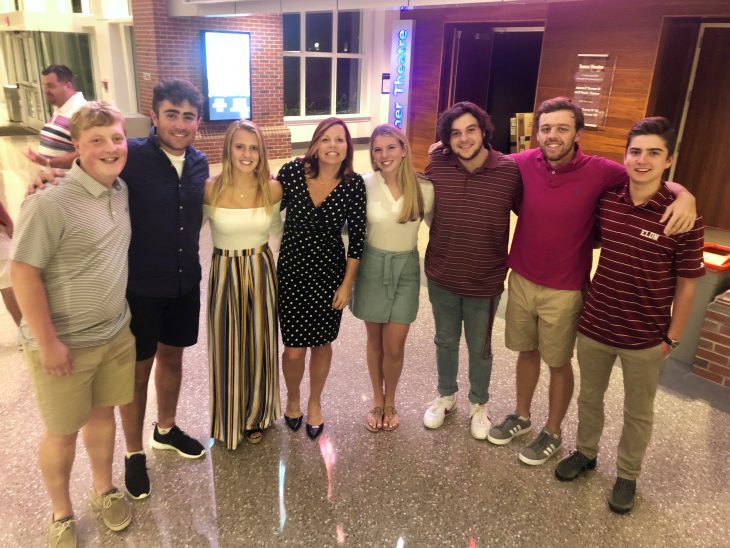
Casey said participating with the Sport Management and Media LLC has strengthened his relationship with faculty members in the sport management program, including the LLC’s advisor Cara Lucia.
Lucia is the chair of the Department of Sport Management and an associate professor at Elon. She’s been at Elon for 10 years and has been involved with residential learning initiatives at the university in some capacity the entire time. She worked with Elon’s Center for Engaged Learning studying the high-impact practice of residential learning communities, as well as serving as a Faculty Director for two years living on campus amongst students.
“There are opportunities for faculty to engage in a formal way in the classroom. And then there are actual opportunities for informal learning that happens interacting with students that you’re living with in that environment,” Lucia said. “It distinguishes the barrier between faculty and student having these real lives outside of the classroom and being able to learn more about each other based on those experiences.”
With the Sport Management and Media LLC in its fourth year, Lucia said she’ll be working on submitting a research project for the current spring semester on the experiences of the graduating seniors in the inaugural cohort to the current first-year students.
Just from conversations with students who took part in the LLC, the relationships built have continued from the initial year in Sloan Dormitory.
“Many of the students I’ve talked to in the LLC, no matter what year … are living with each other still. A lot of the little cohorts stay together,” she said.
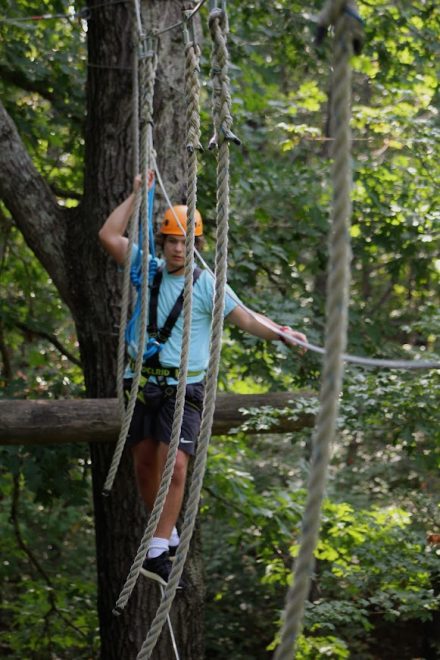
Evan Small is the adviser to the Outdoor Learning Community LLC and echoes the same sentiments for how students in the LLC have continued their relationships. Small has been with the Outdoor LLC for the last four years after working with the Service LLC for six years prior.
The Outdoor LLC focuses specifically on first-year students. Upperclassmen who had been a part of the LLC in the past act as mentors for the current cohort, Small said, giving the students not only connections with their classmates but more experienced students as well.
Housed on the first floor of Virginia Dormitory in the Historic Neighborhood, the Outdoor LLC has increased in popularity, Small said. After quarantine rocked everyone at the onset of the pandemic and with the continued mandates of social distancing and face masking, people are looking for unimpeded ways to connect with others.
“For our sort of programming, we’ve been really lucky in that students are looking for opportunities to engage authentically with each other and with the natural world,” Small said.
As a senior in high school, Sadie Smith ‘25 was looking for outdoor opportunities at the universities she applied to. During one Elon information session, the Outdoor LLC was mentioned, and she was immediately intrigued.
“It’s shaped my Elon experience so much. I can’t even imagine what my experience so far at Elon would have been if I hadn’t been a part of the LLC,” Smith said.
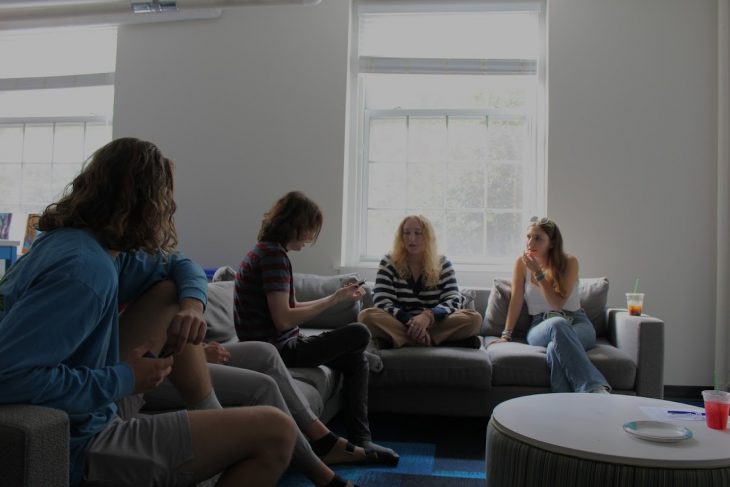
With over two dozen Living Learning Communities on campus, Elon has something for virtually every interest a student may have – academically and culturally. Having had to pivot due to the pandemic, and still being mindful of safely operating as COVID-19 variants show little signs of ebbing, Lundeen hopes to get back to pre-pandemic larger scale events.
“We’re seeing students, as well as faculty and staff, who are involved with LLCs react very positively to the attempts to get back to pre-2020,” Lundeen said.
Students are longing for the opportunity to get back into the community again and faculty are looking forward to in-person debriefings or mentoring sessions with students. A silver lining the pandemic has created is the chance to connect with others, regardless of distance, in turn, widening activity possibilities.
Because of the virtual nature of the past 22 months, people are more proficient in communicating virtually than before. This allows the opportunity to have speakers from all over without having the added logistics involved with having an in-person visitor.
“I think that we’re going to get a little bit more expansive. We’re not going to think that we can only do things with our students, either here at Elon or in the surrounding region. I think we’re starting to think more broadly about how to have connections in other places,” Lundeen said.



